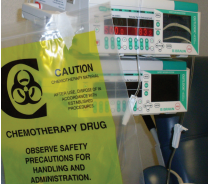The Great Plains is nearing the calendar start of summer. Please be aware of the heat and what its effects can be on workers, on children and the elderly, and on pets. No one is safe in a closed-up car, for example.
Prolonged exposure to excessive heat and humidity can result in injuries and diseases covered by the workers’ compensation laws. Workers with heat exhaustion, strokes, heart attacks and skin conditions may be entitled to lost-time benefits, medical expenses and permanent disability benefits if the condition is serious.
It also appears that extreme weather is going to continue into this summer season, with some damage already to homes, crops and property. When storms do come, be sure it’s someone’s job to keep the crew safe from sudden weather, regardless of the industry. Enjoy the summer, and contact an experienced workers’ compensation attorney if there are questions about a specific incident that occurred at work.
It has been a roller coaster of a May here on the Great Plains. Nebraska and Iowa have both been hit with weather extremes. For example, “Two days after Lincoln recorded a record low temperature and less than two weeks after the city saw significant snow, thermometers soared Tuesday.” And I saw on Facebook via Radio Iowa News, that “Sioux City reports 106 on Tuesday afternoon, beating the old record of 97, set in 2001.” Because the Journal Star says this is the earliest Lincoln’s ever hit 100 degrees (a new record), I will go out on a limb to say that we’re done with freezes for a while, which makes me think about the next season: summer and heat.
Did you know that heat issues can be covered by workers’ compensation? But prevention is preferred, so here are some links with lots of resources for those who work outside, no matter the weather, and also for those who play, garden, golf, exercise, and enjoy the outdoors. In addition, just like one’s body adjust somewhat to cold, the body also adjusts to heat, so a person who spends the summer in the air conditioning will have less tolerance for the heat than someone who spends all day outdoors. In addition, pay attention to prescription medicines, as some can cause sunburn or heat problems quicker than a person not taking that medication would experience them. The heat can also affect folks who may not be considered the traditional “outside” worker, as, for example, if one is unloading cargo from a truck to a warehouse in 100 degree heat, it can be much hotter than that in both the truck and warehouse.
One term that is mentioned on a regular basis in the media once the humidity kicks in is the “heat index,” which is defined as followed, according to http://www.weather.com/outlook/health/fitness/tools/heat: “The Heat Index is the temperature the body feels when heat and humidity are combined.” Of course this means that what it feels like isn’t the actual temperature, as it only felt like 95 when it was 100 recently because of a “dry heat.”
- Welcome to OSHA’s Campaign to Prevent Heat Illness in Outdoor Workers
There is a lot of information on here, and looking through some of it is a reminder that employers should expect and encourage workers to be safe when it comes to working in the heat. Employers should make an effort to encourage this safety focus by both talking about and acting on recommendations to help employees be safer and more productive. - Using the Heat Index: A Guide for Employers
“Water. Rest. Shade. The work can’t get done without them.” This quote from the website is a very useful safety reminder. It looks like there are lots of opportunities through these links for conversations to occur between workers and employers about taking heat index into account when planning work. - NIOSH Workplace Safety and Health Topics: Heat Stress
This site includes an overview; types of heat stress; recommendations for employers; recommendations for workers; and many other links that share resources and research about being in the heat. - Heat Safety Tool
Although I’m generally easily amused, I am sincerely happy to say that there’s an app for that! Because so many people are connected with mobile technology, I am looking forward to downloading this app on my phone for the summer for personal use. - OSHA Quick Card
Here’s a Quick Card resource from OSHA that folks can print out for reference points. And as neat as mobile apps are, from a practical perspective, paper does make a better fan.
So regardless of why you’re outside, enjoy, take care, and be safe!





